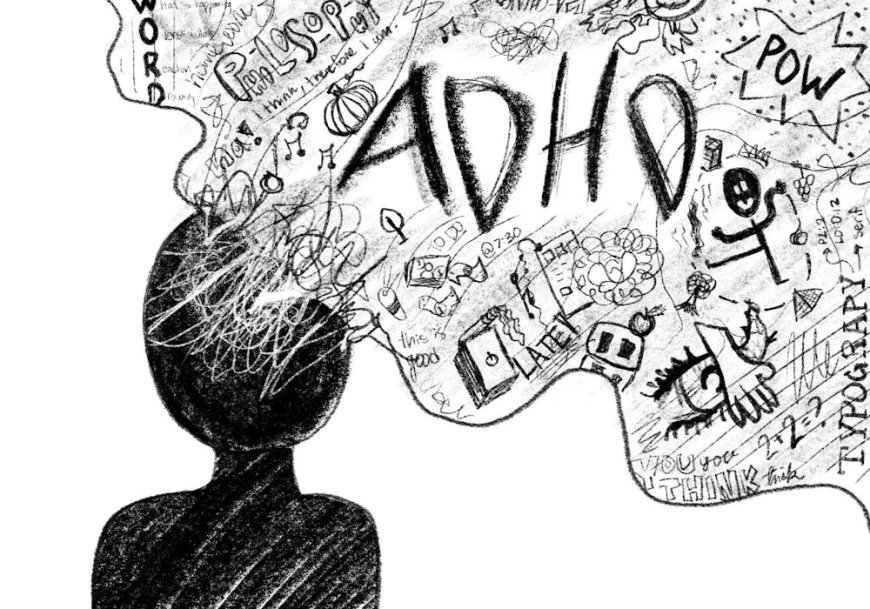ADHD and Behavioral Inhibition: Understanding the Science
Behavioral inhibition, the ability to control one’s responses to stimuli, is a critical aspect of self-regulation and executive function

Introduction
Behavioral inhibition, the ability to control one’s responses to stimuli, is a critical aspect of self-regulation and executive function. For individuals with Attention Deficit Hyperactivity Disorder (ADHD), difficulties with behavioral inhibition are a core feature that significantly impacts daily functioning. Understanding the science behind behavioral inhibition in ADHD can provide insights into the disorder's mechanisms and inform strategies for management and intervention. This article explores the concept of behavioral inhibition, its relationship with ADHD, and the underlying scientific mechanisms.
Defining Behavioral Inhibition
Behavioral inhibition refers to the capacity to suppress immediate reactions or impulses in order to achieve long-term goals or adhere to social norms. It involves several cognitive processes, including attention control, impulse regulation, and response suppression. Effective behavioral inhibition allows individuals to pause and evaluate situations before acting, which is essential for adaptive functioning.
Components of Behavioral Inhibition
Impulse Control:
The ability to refrain from immediate actions or responses that may be inappropriate or counterproductive.
Attention Regulation:
The capacity to focus on relevant stimuli while ignoring distractions, which supports goal-directed behavior.
Response Suppression:
The process of inhibiting prepotent responses or habitual actions in favor of alternative behaviors.
Importance in Daily Life
Behavioral inhibition is crucial for making thoughtful decisions, adhering to rules, and engaging in socially acceptable behavior. It affects various aspects of life, including academic performance, social interactions, and emotional regulation.
ADHD and Impaired Behavioral Inhibition
Individuals with ADHD often exhibit difficulties with behavioral inhibition, which contributes to the core symptoms of the disorder: inattention, hyperactivity, and impulsivity. Understanding how these difficulties manifest can provide insights into the challenges faced by individuals with ADHD medications.
Inattention
Difficulty Sustaining Attention:
Impaired behavioral inhibition can lead to difficulties in maintaining focus on tasks, resulting in incomplete or poorly executed work.
Susceptibility to Distractions:
Individuals with ADHD may struggle to filter out irrelevant stimuli, leading to frequent distractions and reduced task performance.
Hyperactivity
Restlessness and Excessive Movement:
Impaired inhibition can contribute to hyperactive behaviors, such as fidgeting, excessive talking, and difficulty remaining seated.
Difficulty Regulating Activity Levels:
Individuals with ADHD may have trouble controlling their activity levels, leading to disruptive behaviors in various settings.
Impulsivity
Hasty Decision-Making:
Impaired behavioral inhibition can result in impulsive actions and decisions without considering potential consequences.
Interruptive Behavior:
Difficulty suppressing immediate reactions can lead to interrupting others during conversations and engaging in socially inappropriate behaviors.
Neurobiological Mechanisms of Behavioral Inhibition in ADHD
Understanding the neurobiological basis of impaired behavioral inhibition in ADHD involves examining brain regions and neurotransmitter systems associated with executive function and self-regulation.
Prefrontal Cortex
Role in Executive Function:
The prefrontal cortex is involved in higher-order cognitive processes, including impulse control, decision-making, and attention regulation.
Dysfunction in ADHD:
Research indicates that individuals with ADHD may have structural and functional abnormalities in the prefrontal cortex, which can impair behavioral inhibition and executive function.
Basal Ganglia
Involvement in Motor Control:
The basal ganglia play a role in regulating motor activity and response inhibition. Dysfunction in this brain region can contribute to hyperactive and impulsive behaviors.
Neurotransmitter Imbalances:
Imbalances in neurotransmitters, such as dopamine, within the basal ganglia can affect response inhibition and contribute to ADHD symptoms.
Neurotransmitter Systems
Dopamine System:
Dopamine is critical for reward processing, attention, and impulse control. Dysregulation of the dopamine system is associated with difficulties in behavioral inhibition in ADHD.
Noradrenaline System:
Noradrenaline is involved in attention and arousal. Imbalances in the noradrenaline system can affect the ability to focus and regulate responses.
Behavioral and Cognitive Assessments
Assessing behavioral inhibition in individuals with ADHD involves various methods to evaluate impulse control, attention regulation, and response suppression.
Behavioral Assessments
Observational Measures:
Observations of behavior in naturalistic settings can provide insights into impulsivity, hyperactivity, and difficulties with attention regulation.
Parent and Teacher Ratings:
Rating scales and questionnaires completed by parents and teachers can help assess behavioral inhibition and ADHD symptoms in different contexts.
Cognitive Assessments
Executive Function Tests:
Tests such as the Stroop Test and the Go/No-Go Task assess impulse control and response inhibition by measuring the ability to suppress automatic responses.
Attention and Working Memory Tests:
Assessments of attention and working memory can provide information on difficulties with sustaining focus and regulating attention.
Intervention Strategies for Improving Behavioral Inhibition
Effective interventions can help individuals with ADHD improve their behavioral inhibition and overall executive function. Strategies may include behavioral therapies, cognitive training, and pharmacological treatments.
Behavioral Therapies
Cognitive Behavioral Therapy (CBT):
CBT can help individuals with ADHD develop strategies for impulse control, attention regulation, and goal setting. Techniques may include self-monitoring, problem-solving, and cognitive restructuring.
Behavioral Modification:
Implementing reinforcement systems, such as rewards and consequences, can help reinforce desired behaviors and improve self-regulation.
Cognitive Training
Executive Function Training:
Programs designed to enhance executive functions, such as working memory, attention, and impulse control, can support improvements in behavioral inhibition.
Attention Training:
Techniques such as mindfulness and attention control exercises can help individuals with ADHD improve their ability to focus and regulate attention.
Pharmacological Treatments
Stimulant Medications:
Medications such as methylphenidate and amphetamines can help regulate neurotransmitter systems involved in impulse control and attention, improving behavioral inhibition.
Non-Stimulant Medications:
Non-stimulant medications, such as atomoxetine, can also support improvements in attention and impulse control by targeting different neurotransmitter systems.
Future Directions and Research
Ongoing research aims to further elucidate the mechanisms of behavioral inhibition in ADHD and develop more effective interventions. Key areas of focus include:
Genetic and Neurobiological Research
Genetic Studies:
Investigating the genetic basis of ADHD and behavioral inhibition can provide insights into susceptibility and potential targets for treatment.
Neuroimaging Studies:
Advances in neuroimaging techniques can help identify specific brain structures and networks involved in behavioral inhibition and their role in ADHD.
Integrated Approaches
Combining Therapies:
Exploring the efficacy of combining behavioral, cognitive, and pharmacological treatments can lead to more comprehensive and individualized intervention strategies.
Personalized Medicine:
Tailoring interventions based on individual differences in neurobiological and genetic profiles can improve outcomes for individuals with ADHD symptoms.
Conclusion
Behavioral inhibition is a crucial aspect of self-regulation and executive function, and difficulties with behavioral inhibition are central to the challenges faced by individuals with ADHD. Understanding the neurobiological mechanisms and assessing behavioral inhibition can inform effective interventions and support strategies. By addressing the underlying issues related to impulse control, attention regulation, and response suppression, individuals with ADHD can improve their self-regulation skills and overall functioning. Continued research and advancements in intervention strategies will enhance our ability to support individuals with ADHD and address the complexities of behavioral inhibition.
What's Your Reaction?





















